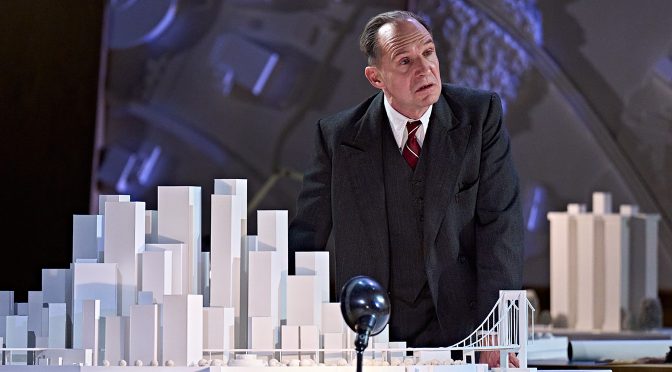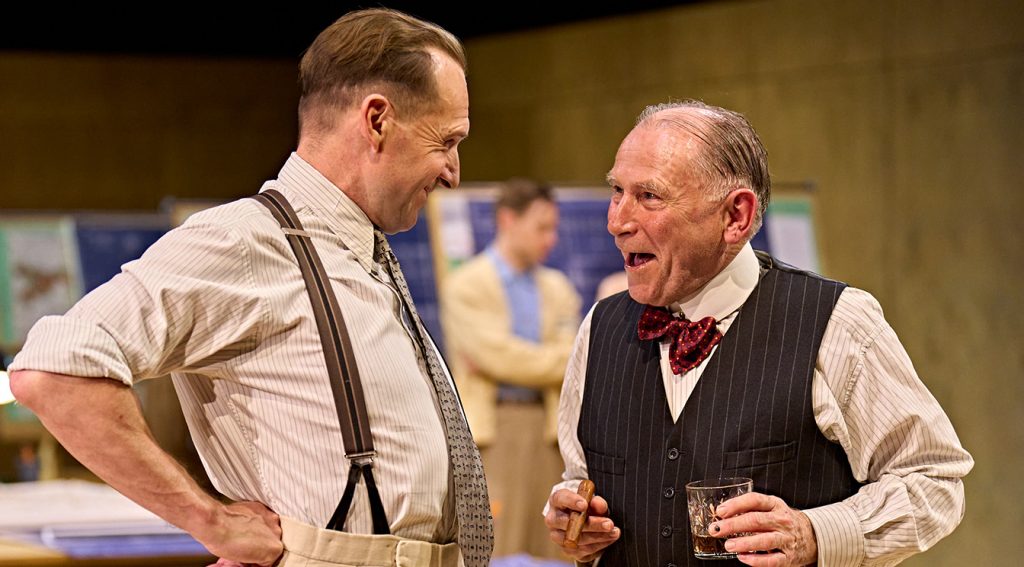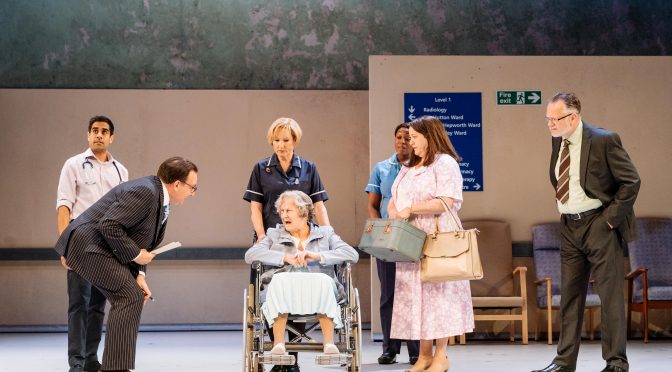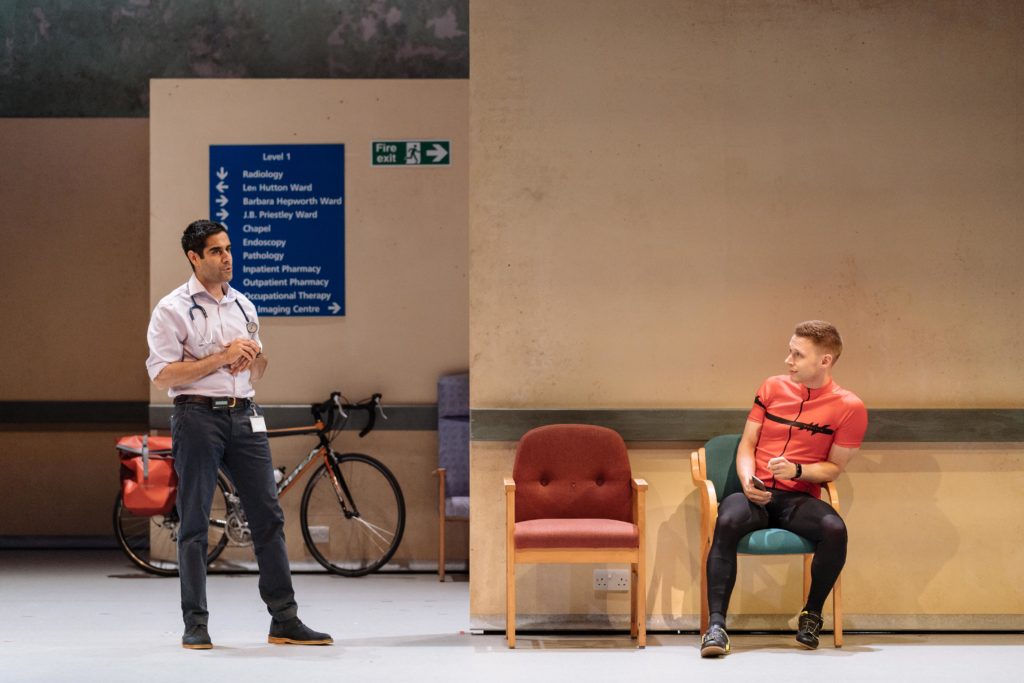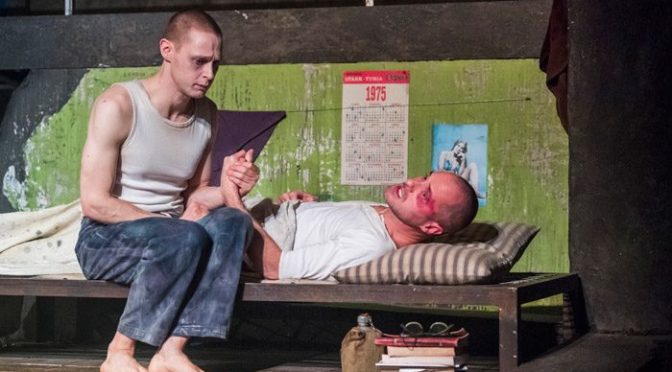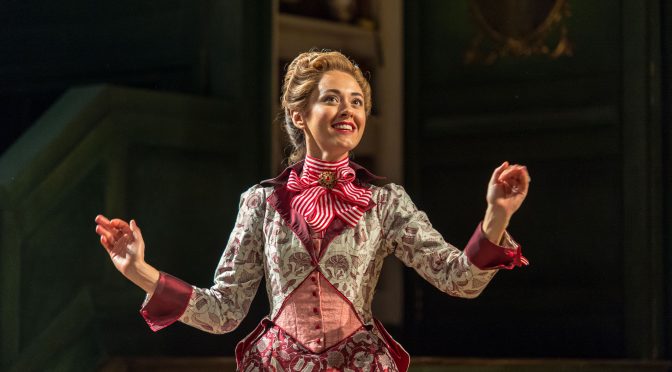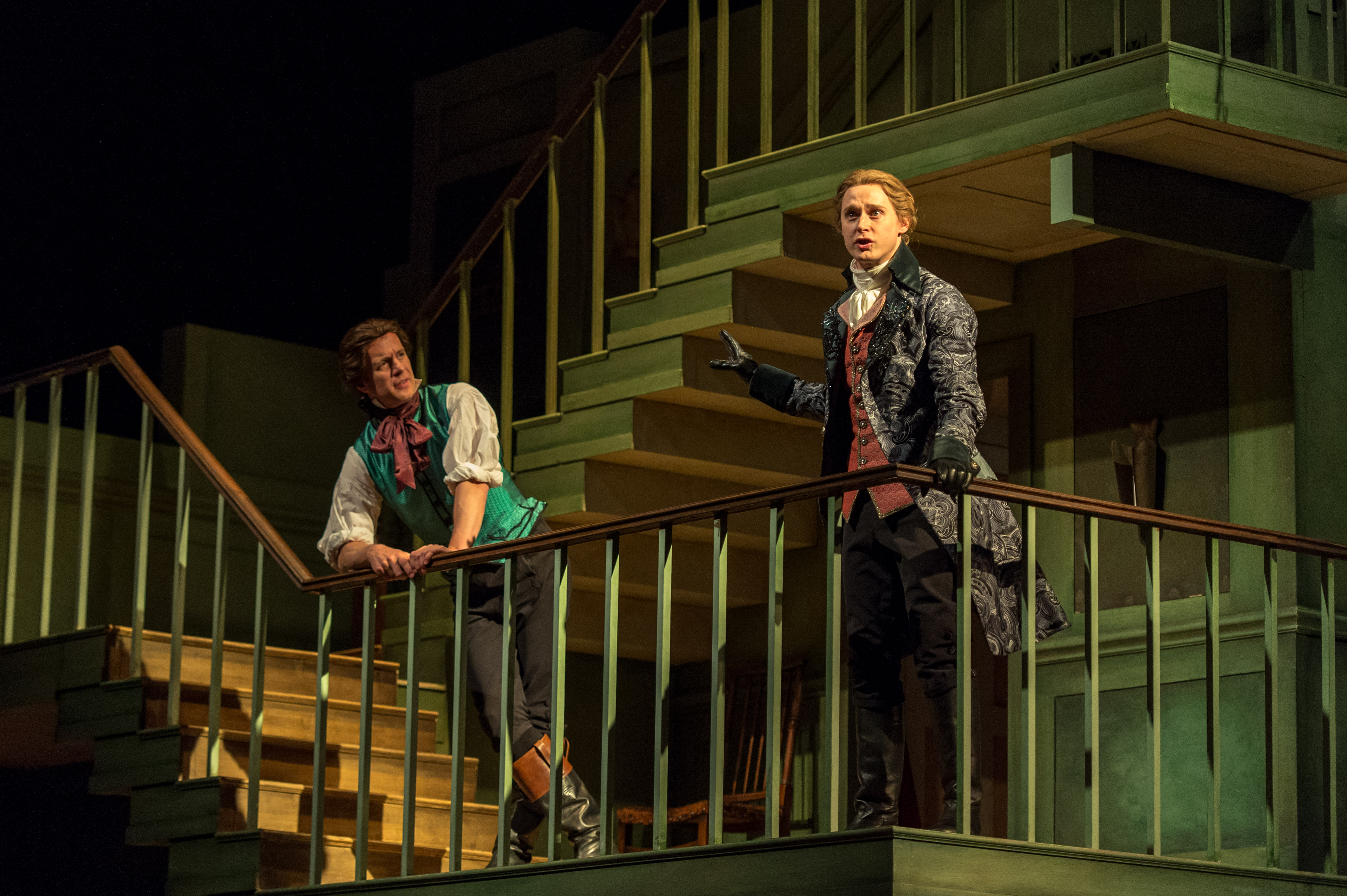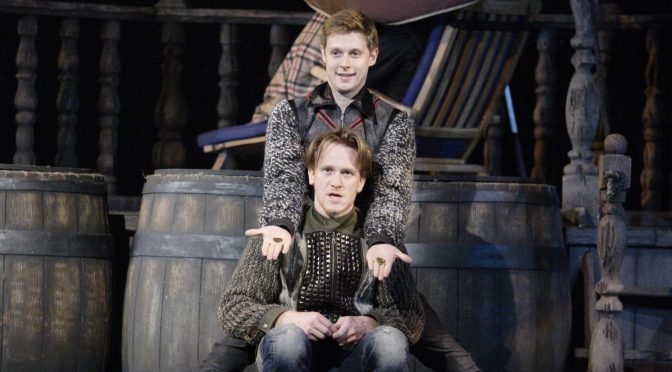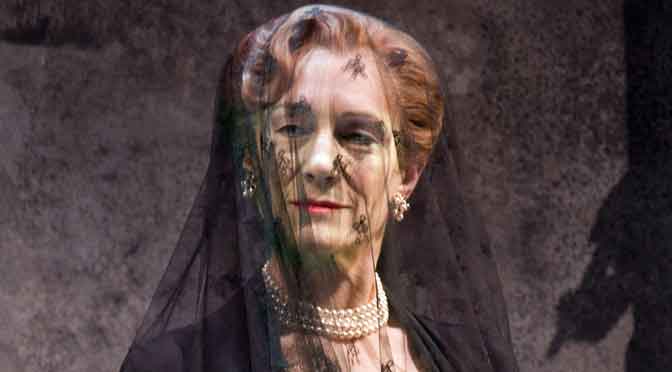It makes sense that Marcelo Dos Santos’ monologue was a success at the Edinburgh Festival. The Comedian character we spend an hour with has a lot to say about humour and his delivery is impeccable. It’s clear Samuel Barnett, who takes the role, could have a second career in stand up. And the play is very funny.
Dos Santos provides insight as well as laughs, even if not all his ideas are new. The tears of a clown cliché, the need for an audience – we know all this – but less so the cold calculating skill of the comedian’s craft being compared to the work of a butcher. Along with stops and starts to what may or may not be the routine, there’s enough to make you pause, question and think.
The play is a love story, too, as an affair with an American, whose name is never revealed, develops. Again, discussion of dating apps and cultural differences is standard stuff, although well written. The offstage character is vivid and the romance endearing. And there’s a great twist when it comes to “what’s wrong” with this new love that provides a surprising and neat conclusion.
It’s all tightly written, and Matthew Xia’s direction helps enormously. If there are reservations, you might question how well Dos Santos handles his “unreliable first-person narrator”. The Comedian, with his hook-ups and drug use, might be too obviously troubled to create much tension? Too frequently his passive aggression is, well, just aggressive.
Still, it is a bold move to stretch our sympathy, and Barnett really comes into his own here. The “professional neurotic” he plays often grates, but he earns our attention even when he’s being contemptuous. And you feel for him even though he is silly. After all, isn’t being morbid and self-obsessed contradictory? (If you think life is pointless, why does yours matter so much?)
If the show aims at edgy, it doesn’t quite get there, but all involved do a great job. The script is efficient, Xia sensitive and Barnett fantastic. Even the microphone is used to great effect – as a weapon and a shield. How Barnett manages his single prop neatly parallels the show’s underlying anger and vulnerability.
Until 23 December 2023
Photo by The Other Richard


